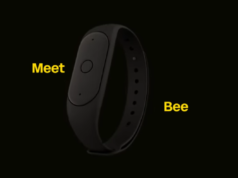Ericsson officials say they will have the components for 5G networks by 2017, while Nokia adds incremental advances between 4G and 5G.
Ericsson and Nokia are getting new products ready for next year that officials with both say will push telecommunications companies closer to creating 5G wireless networks.
In fact, Ericsson executives said last week that addition of a 5G NR radio for massive MIMO (multiple input, multiple output) support combined with other 5G technologies the company has released will give Ericsson all the components needed for carriers to build 5G networks in 2017, which would put it three years ahead of when standards for new international standards for the wireless technology are set.
The company also is rolling out technologies designed to enhance the performance and efficiency of current networks with concepts that officials said will become 5G.
“Ericsson has driven innovation in every generation of mobile technology and now we are set to over-deliver on an aggressive promise,” Arun Bansal, head of business unit network products at Ericsson, said in a statement. “We are introducing the new hardware that 5G Plug-Ins, announced in June, will run on, so that the first operators can start to deploy 5G infrastructure.”
For its part, Nokia officials not only unveiled 4.5G Pro that they said will boost capacity and speed in operators’ networks as they move their infrastructures to 5G, but also unveiled plans for 4.9G as a further incremental step toward the next-generation technology.
Trends like the internet of things (IoT), cloud computing, data analytics, virtual and augmented reality, driverless cars, video and artificial intelligence are driving the need for greater mobile network speed and performance. AT&T officials have said data traffic on the provider’s wireless network great by more than 150,000 percent from 2007 to 2015, driven largely by video.
5G promises to deliver those network enhancements, with speeds 10 to 100 times faster than the average 4G LTE connections of today and the capacity to accommodate the tens of billions of devices that will make up the IoT.
The 3GPP (3rd Generation Partner Project), which also had set the 4G LTE standard, in March announced a tentative timeline for 5G that doesn’t show a standard being approved until 2020. However, carriers and networking technology vendors already are moving ahead with 5G projects. AT&T and Verizon are among the service providers that are preparing field trials for this year, while Huawei Technologies, Intel and other tech vendors are making significant investments.
Ericsson officials said that the company will be ready to deliver the components to allow carriers to build 5G networks next year. The final piece needed was the 5G NR radio. The AIR 6468 is designed to support not only 5G technologies, but also advanced 4G LTE technologies that will enable telcos to bring in 5G capabilities while continuing to run 4G operations.
In June, Ericsson introduced 5G plug-ins. With those along with the 5G NR radio and Radio System Baseband 5216—which runs Ericsson’s Radio Test Bed—Ericsson officials said they now have the components needed for 5G networks. The first deployments of the radio will come in 2017.






